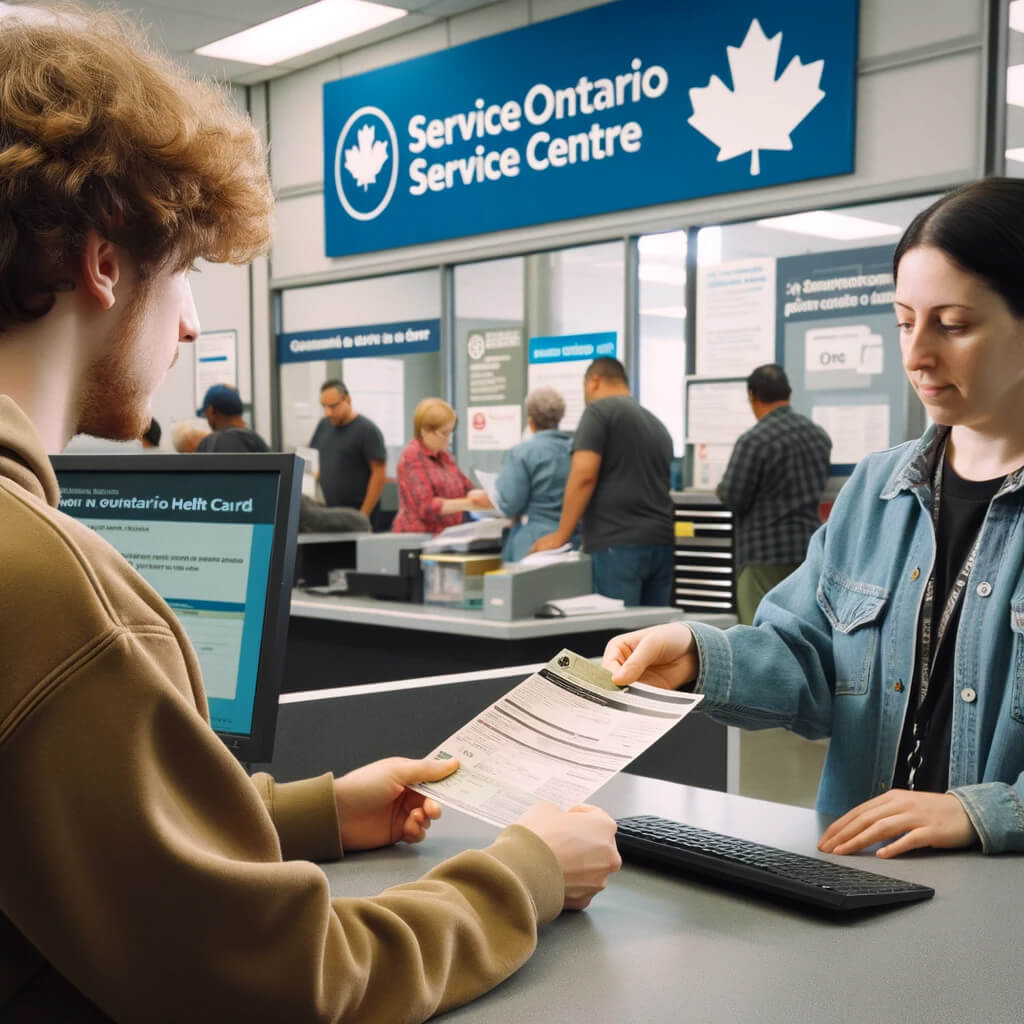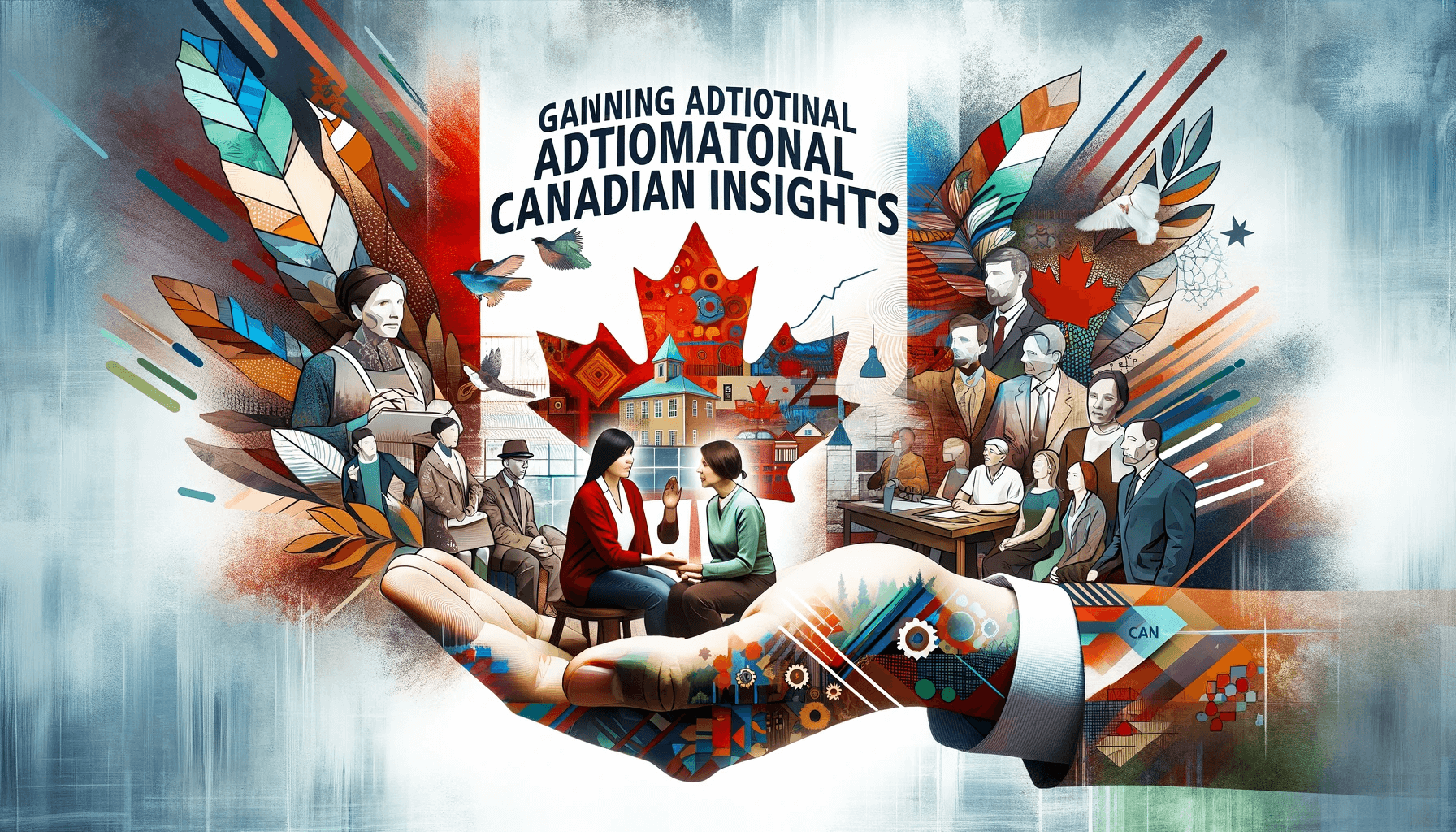What Happens After Medical Examination for Canada Immigration?
Your Quick 30-Second Answer about
What Happens After Medical Examination for Canada Immigration
It is crucial to know what happens after medical examination for Canada Immigration! You'll need to check your medical exam results within 30 days. If they show as completed, Immigration, Refugees, and Citizenship Canada (IRCC) will contact you with instructions for the next steps in your application. Keep in mind that as of October 1, 2023, upfront medical examinations are no longer required for Express Entry applicants; you should wait for IRCC's guidance. Passing the medical exam is positive, but it doesn't guarantee a visa, as the decision depends on a comprehensive assessment, including security checks and document verification. The processing time for your application may vary due to factors like application volume and specific circumstances, so it's essential to be prepared for various outcomes, including acceptance, requests for more information, or even a denial.
For an in-depth overview, please see the "Table of Contents" below.
Guide to What Happens After Medical Examination for Canada Immigration!
Welcome to your guide, where we explore next steps after medical examination, to smoothly transition into your new life as a Canadian permanent resident. What happens after medical examination for Canada immigration is a common concern among applicants.
TABLE OF CONTENT
Overview and Preparation
1. Why Use this Guide?
2. Medical Examination Process
Medical Examination Insights
3. Next Step After Medical
4. Is a Medical Positive Sign?
After-Medical Examination Steps
5. Timeline for Decision
6. What to Do While Waiting
After-Approval Process
7. Conditional Acceptance
8. Visa Approval: Next Steps
Additional Information
9. Common Questions FAQs
10. Additional Resources

1. Direct Answer to What Happens After Medical Examination for Canada Immigration
This guide is your secret weapon to Canadian permanent residence. Primarily, this guide is for anyone who wants to learn about immigration to Canada. If you find the official rules and documents about the requirements to move to Canada confusing, this guide can be your helpful friend. Whether driven by economic opportunities, familial ties, or the pursuit of safety, Canada offers a range of avenues including provincial nomination programs. Understanding what happens after medical examination for Canada immigration is crucial for a smooth application process.
After completing your medical examination for Canadian immigration, the next steps and timeline can be crucial for your application process. Here's a comprehensive understanding focusing on the key aspects:
1. Checking Medical Exam Results: Typically, you can check the status of your medical exam results within 30 days of the exam date. This is an important step as it determines the progression of your application.
2. Next Steps after Medical Exam: Once the results are updated and show as completed, Immigration, Refugees, and Citizenship Canada (IRCC) will inform you about the subsequent steps in your application process. It's important to be attentive to any communication from IRCC during this period.
3. Role of Upfront Medical Exams for Express Entry Applicants: As of October 1, 2023, upfront medical examinations are no longer required at the time of application for Express Entry. Applicants are advised to wait for instructions from IRCC before proceeding with a medical examination. This change is part of the updated instructions for processing offices on when to request a medical examination.
4. Impact of Medical Exam on Visa Decision: Passing the medical exam is a positive step but does not guarantee visa approval. The medical exam is one part of a comprehensive assessment process that includes security checks, verification of documents, and other eligibility criteria.
5. Processing Time and Decision: The overall processing time for your immigration application can be influenced by various factors, including the time taken for medical exam results to be processed and reviewed. The processing time can also vary depending on the volume of applications and specific cases.
6. Preparing for Possible Outcomes: After the medical exam, it's wise to prepare for all possible outcomes, including acceptance, requests for additional information, or even a denial. Staying informed and proactive during this period is crucial.
Understanding these steps and maintaining regular communication with IRCC will help you navigate through the process effectively. Remember, each immigration case is unique, and the processing times and requirements may vary based on individual circumstances.
2. Medical Examination Process and Steps Explained

Embarking on the journey to Canadian immigration involves several critical stages, one of which is the medical examination. It's a process that plays a pivotal role in determining your eligibility for entering Canada, whether as a permanent resident, a temporary resident, or a student. But what exactly unfolds after you've completed this crucial step? This article delves into the post-medical examination procedures, demystifying the path that lies ahead for applicants and highlighting what you can expect.
1. The Purpose of the Medical Examination
Before diving into the aftermath of the medical examination, it's important to understand its purpose. The Canadian government mandates this exam to safeguard public health and to prevent undue strain on Canada's health and social services. This exam is comprehensive, assessing your overall health to ensure you do not pose a risk to public health or safety, nor place excessive demand on Canadian health or social services.
2. What Happens During the Medical Exam
During the examination, which can only be conducted by an approved panel of physicians, you will undergo various assessments. These include a physical examination, where your height, weight, blood pressure, and other vitals are checked. Depending on your years of age, you might undergo additional tests like chest x-rays and laboratory tests. It's also crucial to bring any relevant medical records or proof of vaccinations to this appointment.
3. Processing Times After the Medical Examination
After completing the medical exam, the results are sent directly to Immigration, Refugees and Citizenship Canada (IRCC). You can typically expect to hear about the status of your application within 30 days of the examination date. Once IRCC has reviewed and processed these results, they will inform you of the next steps in your application process.
4. The Impact on Your Application: What Happens After Medical Examination for Canada Immigration
It's a common misconception that passing the medical examination guarantees a visa or permanent residency. While a successful medical exam is a positive step, it's not the only factor that influences the final immigration decision. Your application still undergoes thorough assessment based on various criteria, including security checks and eligibility verification.
5. Addressing Medical Inadmissibility
In some cases, if a health condition is identified that might pose a danger to public health or safety, or could cause excessive demand on health or social services, your application might be impacted. However, there are exceptions, such as for refugees or certain family sponsorship applicants. If there are concerns about medical inadmissibility, you will be notified and given a chance to respond before a final decision is made.
6. The Role of Family Members in the Medical Examination Process
If you're applying for permanent residence, it's not just you who needs to undergo the medical examination. All family members listed in your application, whether accompanying you to Canada or not, must also complete their medical exams. This is to ensure that all potential future residents meet the health standards required by Canadian immigration policies.
Understanding what happens after medical examination for Canada immigration is crucial for those navigating the path to Canadian immigration. While passing the medical exam is a significant milestone, it's part of a broader, multifaceted assessment process. As you await the final decision on your application, it's important to stay informed and prepared for any additional requests or steps that may arise.
3. What Are Next Step After Medical Examination

Understanding the subsequent steps is crucial to navigating this journey successfully.
The Post-Medical Exam Immigration Application Process:
- 1. Review of Medical Exam Results: The medical report from your exam, including chest x-ray, blood tests, and urine tests, is reviewed by the Canadian government. This assessment ensures that you meet the health standards set for Canadian immigration.
- 2. Application Progression: If your medical results indicate good health, your application proceeds to the next phase. For permanent resident applicants and temporary residents, this means closer scrutiny of other application aspects like visa applications and work permits. After the medical exam for Canada immigration, applicants may have to provide additional information or undergo further tests.
- 3. Impact on Visa Applications: Passing the medical examination is a positive step, but it doesn't automatically guarantee a visa. The visa officer considers various factors, including your medical results, financial stability (evidenced by credit card statements or bank documents), and employment prospects in Canada.
Does a Passed Medical Exam Guarantee a Visa?
- The short answer is no. While passing the medical exam is essential, it's not the sole criterion for decision-making. The Government of Canada evaluates each application holistically, considering factors like public health concerns, financial stability, and background checks.
- For express entry applicants: Your inclusion in the express entry program does not solely hinge on medical examination results. Factors like your skills, work experience, and adaptability are also crucial.
The Role of Upfront Medical Examinations:
- Upfront medical examinations are a proactive step for visa applicants. These exams can be taken before submitting your application, thereby speeding up the process once your application is filed.
- For foreign nationals applying for Canada immigration, undergoing an upfront medical exam means less waiting time for medical clearance once the application is in process.
After completing the medical examination for Canadian immigration, applicants often wonder, what happens after medical examination for Canada immigration?"
What Applicants Should Keep in Mind:
- 1. Following Documents: Always have the necessary following documents ready, including a certified copy of birth certificate, if required.
- 2. Understanding the Medical Examination Number: Each medical exam is assigned a unique medical examination number. This number is crucial for tracking the status of your medical results on the IRCC website.
- 3. Preparing for Additional Testing: Sometimes, based on your medical results or current medical conditions, additional testing might be requested. It's important to complete these tests promptly to avoid delays in processing.
- 4. Responsibility of Panel Physicians: The panel of physicians conducting your exam have the responsibility to conduct it thoroughly and report accurately. Ensure that you provide them with a complete list of medications and any medical history questionnaire information that could impact your results.
Passing your medical exam is a vital step towards achieving Canadian permanent residency or a temporary visa. However, it's part of a larger process that includes various other factors. Applicants should stay informed and prepared for additional steps, ensuring they have all the necessary documentation and meet all requirements set forth by Immigration Canada.
4. Is a Medical Examination Positive Sign? Clearing Misconceptions!

Understanding the role of medical exams in the Canada immigration process helps in dispelling myths and setting realistic expectations. Let's explore the significance of these exams in the context of visa decisions.
Clearing Misconceptions About the Medical Exam:
- A Common Misconception: There's a belief that a medical exam is requested only when a positive decision is likely. However, this isn't accurate. The immigration medical examination is a standard requirement for all seeking permanent residence, temporary residence, or work permits in Canada. It applies to primary applicants as well as dependent children and other family members included in the application.
- Medical Exam for All Applicants: Whether you are a student applying for a study permit, a temporary worker, or an individual pursuing a Canada PR application, the medical exam is a mandatory step. This includes those applying under various visa programs, including the express entry program for permanent resident applicants.
The Role of Medical Exams in Visa Application Assessment:
- Health and Public Safety: The primary purpose of the medical exam, including chest x-ray and blood tests, is to assess if the applicant poses any risk to public health or medical grounds for inadmissibility.
- Comprehensive Evaluation: The results of your medical examination, including test results provided by the panel of physicians or an IRCC-approved doctor, contribute to the overall assessment. However, they are not the sole deciding factor.
Factors Beyond Medical Exam in Visa Decision Making:
- Other Application Components: Apart from medical results, other factors like your visa application details, background checks, and the case number of your application play a significant role.
- Compliance with Requirements: Adherence to medical test requirements and submission of additional information as requested by IRCC or the visa officer is crucial.
- Individual Circumstances: Each application is unique. For instance, a refugee claim might be treated differently from a temporary residence application. Similarly, international students may have different requirements compared to skilled workers.
Further Steps Post Medical Examination:
- Awaiting Decision: After the medical exam, you need to wait for the decision. This period can vary based on individual cases.
- Preparing for Next Steps: Depending on your situation, whether you're a live-in caregiver, a common law partner, or applying for a Canada student visa, the following steps post-medical examination will vary. For example, students might need to prepare for their educational journey, while skilled workers should focus on their employment plans in Canada.
- Staying Informed: Always keep updated with the latest information from the citizenship Canada website and IRCC website. It's important to know about any new processes or changes in immigration Canada policies.
In summary, the medical examination is a crucial but not the only factor in the Canada visa and immigration process. Applicants should prepare for a comprehensive evaluation and stay informed about the new application process and requirements. Understanding what happens after medical examination for Canada immigration is essential for a smooth journey towards achieving your Canadian dream.
5. Timeline for Immigration Decision after Medical Exam

Understanding the timeline after completing the medical examination for Canada immigration is essential for applicants. This section provides insights into what to expect in terms of processing times and how to effectively track the progress of your application.
Average Processing Times After Medical Exam Completion:
- Varied Timelines: The time it takes to receive a decision on your application can vary. Generally, the average processing time is about 30 days from the date of the medical exam. However, this can change based on several factors.
- Dependent on Application Type: For instance, applicants for a work permit might experience different processing times compared to those applying for permanent residence.
Factors Influencing the Processing Timeline:
- Application Volume: High volumes of applications can lead to longer processing times. During peak immigration periods, expect delays.
- Applicant's Country: Sometimes, the applicant’s country of origin can affect the timeline, especially if additional verifications are required.
- Complexity of Medical Results: If your medical exam reveals conditions that require further assessment, this can extend the processing time. Situations involving health grounds or medical reasons may necessitate additional medical aid or consultations with medical clinic staff or your own doctor.
- Administrative Delays: Occasionally, administrative factors within IRCC or at the x-ray clinic where tests were conducted can affect the timeline.
Tips for Tracking Your Application Status:
- Use IRCC’s Online Tools: The most efficient way to track the status of your application is by using the online tools provided on the IRCC website. Here, you will need your case number or application number.
- Check for Updates Regularly: Regularly logging into your account on the IRCC website will keep you informed of any changes or updates in your application status.
- Prepare Necessary Documents: While waiting, ensure you have all necessary documents ready, like a certified copy of your birth certificate and any documents pertaining to your status as a family member, common law partner, or international student.
For New Applicants and Future Changes:
- Stay Informed About New Processes: Immigration policies and processes can change. Be aware of any new upfront medical examination appointments or changes in the visa program.
- Guidance for Specific Groups: Special considerations may apply to certain groups, such as those applying under a specific visa program or international students. Always check the latest guidelines relevant to your specific situation.
What happens after medical examination for Canada immigration involves a waiting period where various factors influence the processing time of your application. Staying informed, regularly checking the IRCC website, and being prepared with all necessary documentation can help you navigate this phase more effectively.
6. What to Do While Waiting for Your Visa Decision

After completing your medical examination for Canada immigration, there's often a period of waiting before you receive your visa decision. This time can be filled with anticipation and uncertainty. Here's what you can do to navigate this phase effectively.
Practical Advice During the Waiting Period:
- Stay Organized: Keep all your documents, such as a certified copy of your birth certificate and other necessary paperwork, well-organized. This helps in case of any additional requests from the immigration authorities.
- Maintain Close Contact: Stay in touch with the medical clinic staff members and IRCC. If there are any changes in your contact details, update them promptly to ensure you receive all communications.
Preparing for Potential Outcomes:
- Acceptance: If your application is accepted, begin preparing for your move. This includes finalizing housing, employment, and other logistics in Canada.
- Additional Requests: Sometimes, you might receive requests for more information or documents. Respond to these promptly to avoid delays.
- Denial: In the event of a denial, understand the reasons provided. You may seek legal advice or consider reapplying if circumstances allow.
Staying Informed and Proactive:
- Check Application Status: Regularly check the status of your application on the IRCC website. This is where you'll first see any updates or decisions.
- Read up on New Processes: Immigration policies can change. Stay informed about any new process in Canadian immigration to ensure you're up-to-date.
- Support for Common Law Partners: If you're applying with common law partners, ensure their documents are also complete and up-to-date. Their status can affect your application.
- Seek Clarification When Needed: If you have any doubts or need clarification, don’t hesitate to contact IRCC or seek advice from immigration consultants.
Handling Stress and Anxiety:
Knowing what happens after medical examination for Canada immigration can alleviate anxiety during the waiting period.
- Stay Positive: The waiting period can be stressful. Try to stay positive and use this time to learn more about life in Canada.
- Engage in Preparation Activities: If you're an international student or a temporary worker, use this time to prepare for your studies or job in Canada.
In summary, while waiting to find out what happens after medical examination for Canada immigration, it's important to be proactive, organized, and well-informed. Prepare for all possible outcomes and use this time to get ready for your new life in Canada.
7. Understanding Conditional Acceptance and Additional Requirements
When undergoing a medical examination for Canada immigration, there are instances where you might encounter conditional acceptance or be asked for more medical information. Here’s what to expect in these situations:
Cases Where Additional Information or Tests May Be Required:
- Additional tests or information may be needed if there are health concerns that could affect public safety or cause excessive demand on Canada's health services.
- These concerns often include infectious diseases or conditions that might require significant medical aid or social services.
How to Handle Requests for More Medical Information or Tests:
- Comply promptly if asked for additional tests or information. Visit your panel physician or designated medical professional to complete these requirements.
- Respond to any procedural fairness letters by providing the necessary medical evidence or a mitigation plan.
The Concept of Conditional Acceptance Based on Medical Results:
- Conditional acceptance might be based on meeting certain health criteria, such as ongoing treatments or monitoring of your condition.
- Understand the implications and comply with any conditions attached to your acceptance.
8. Visa Approval: Next Steps After a Positive Decision
After your Canada immigration visa is approved, here are the steps to follow:
Process Following Visa Approval:
- Upon receiving visa approval, you'll typically get a visa stamp in your passport. This is your green light to start making travel arrangements to Canada.
- Make sure all essential documents, like your passport with the visa and accommodation details, are in order.
Preparing for Travel to Canada:
- Familiarize yourself with Canadian customs and immigration processes to ensure a smooth entry upon arrival.
- Start setting up essential services like a bank account and healthcare in Canada.
Initial Steps Upon Arrival as a New Immigrant:
- Go through immigration clearance where your documents and visa will be checked.
- Begin the process of settling in, such as finding long-term accommodation and understanding local laws and customs.
Handling Delays or Negative Decisions
If your visa decision is delayed or refused, here are some steps you can take:
Dealing with Visa Decision Delays:
- Regularly check the status of your application through IRCC’s online tools.
- If the delay seems unusual, contact IRCC for more information.
Responding to Visa Refusal:
- Understand the reasons for refusal, which will be detailed in the decision letter.
- Consider re-applying or appealing the decision, depending on the refusal reasons.
Seeking Legal Advice:
- For guidance on what happens after medical examination for canada immigration or how to proceed after a refusal or delay, seeking advice from a legal expert in Canadian immigration can be helpful.
9. FAQs - What Happens After Medical Examination for Canada Immigration

What specific tests are included in the Immigration Medical Exam (IME)?
What specific tests are included in the Immigration Medical Exam (IME)?
The IME typically involves a physical checkup, mental examination, and additional tests like urinalysis, syphilis testing, and HIV testing for individuals above certain ages.
How long are the results of the IME valid?
How long are the results of the IME valid?
The validity of IME results is generally 12 months from the exam date. It’s important to time your exam appropriately in relation to your application process.
Can I choose any doctor for my IME?
Can I choose any doctor for my IME?
The IME must be conducted by a Panel Physician approved by the Government of Canada. Family doctors cannot perform this exam unless they are designated Panel Physicians.
What happens if a medical condition is identified during the IME?
What happens if a medical condition is identified during the IME?
If a medical condition that may affect public health, safety, or cause excessive demand on health or social services is identified, it could lead to medical inadmissibility. Some applicants may be eligible for a Temporary Resident Permit (TRP) in certain cases.
How does the IME process affect children and dependents included in the application?
How does the IME process affect children and dependents included in the application?
Children and dependents included in the immigration application are also required to undergo medical exams if they meet the eligibility criteria.
What is the cost of the IME, and who is responsible for it?
What is the cost of the IME, and who is responsible for it?
Applicants are responsible for covering the costs of medical exams, which vary based on the type of exam and the Panel Physician's charges.
Are there any preparatory steps I should take before the IME?
Are there any preparatory steps I should take before the IME?
You should review your medical history, complete any pre-exam medical tests, and bring necessary documents like your passport, proof of vaccination, and medical records to the examination.
What if I miss my scheduled IME appointment?
What if I miss my scheduled IME appointment?
If you miss your appointment, it’s crucial to reschedule as soon as possible to avoid delays in your application process.
Can I have a chaperone during my IME?
Can I have a chaperone during my IME?
You are allowed to have a chaperone during the entire exam for comfort and support.
What should I do after completing my IME?
What should I do after completing my IME?
After completing the IME, submit all other required portions of your application, respond promptly to any requests for additional information from the Government of Canada, keep track of your application status, and follow guidelines provided by your Panel Physician.
These FAQs provide further clarity on various aspects of 'What Happens After Medical Examination for Canada Immigration'. Always refer to official guidelines and consult with immigration experts for the most accurate and up-to-date information tailored to your specific situation.
10. Where to Find Additional Resources
To further assist you in your journey, here is a list of helpful websites and organizations for new PRs:
- Medical exams – Immigration
- Immigration, Refugees and Citizenship Canada (IRCC): For official information on PR status and citizenship.

Kamal Akhtar is a Canadian immigration lawyer licensed by the Law Society of Ontario. Based in Ontario, Canada. Kamal has years of experience helping foreign nationals with immigration applications and appeals. He specializes in Canadian immigration law and other complex entry solutions. Kamal dedicates himself to delivering honest, strategic, and client-centered legal solutions for every case.
Kamal's credentials include a Bachelor of Law (LL.B.) and a Master of Law (LL.M.) from Osgoode Hall Law School in Toronto. Kamal is a noted member of professional associations like the Canadian Immigration Lawyers Association (CILA), the Canadian Association of Professional Immigration Consultants (CAPIC), the Canadian Bar Association (CBA), and the Ontario Bar Association (OBA). Over 20 years of legal experience shape Kamal's insights.
Please note that the information provided on this website does not constitute legal or professional advice.
Phone: +1 (289) 216-4666 | Fax: +1 (289) 778-4745 | Email: info@kamallaw.ca



